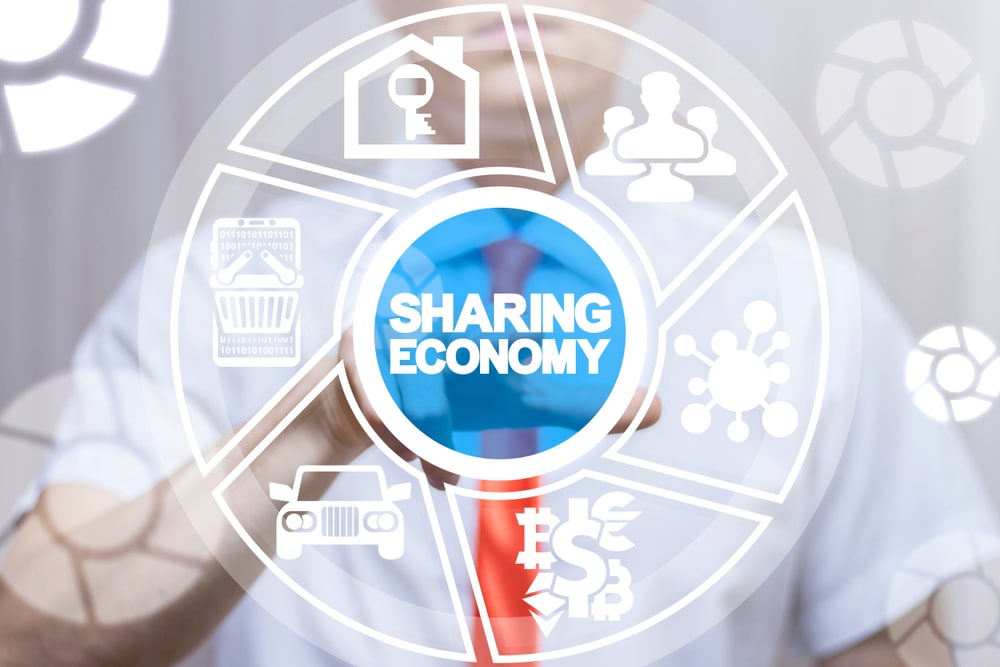Can digital identity verification save the sharing economy?

With online sharing services (such as Uber, Airbnb and TaskRabbit) expected to be utilized by 86.5 million people by 2021, it is evident that the sharing economy is now mainstream. However, this$335 billion market is challenged by trust and safety concerns. Without trust, the sharing economy will not reach its full potential, and the only way to establish this trust is through digital identity verification to ensure users and providers in the sharing economy are who they claim to be.
Trust is required for the sharing economy to thrive -- the expectation that all parties are who they say they are and are operating in good faith. When hiring a worker from TaskRabbit, consumers trust the individual has been properly vetted. When a consumer orders a special occasion outfit from Rent the Runway, users trust it will arrive on time and in good condition. Users of the sharing economy trust that the company has verified the identities of its providers (e.g., drivers, delivery people, hosts, freelancers) and that their services are reliable and safe. Likewise, providers have faith that new users have passed some sort of identity verification before being accepted onto the sharing platform. When this trust is broken -- as we’ve seen on Craigslist,GoFundMe and elsewhere -- it cannot be easily repaired.
Trust and safety concerns in the sharing economy
The sharing economy brings concerns from both consumers and providers, that only trust can resolve.
Consumer concerns
When using sharing economy services, consumers want to feel confident that service providers are who they say they are, that reviews are legitimate, that their physical safety won’t be endangered and that they will remain financially unscathed.
Despite this, Jumio found that one in five adults feel unsafe using sharing services in its recent Global Trust and Safety Survey. The survey polled 1,000 U.S. adults and 1,000 U.K. adults to gauge usage and perception of safety related to online sharing services.
Consumers also desire a seamless enrollment process, with a quick, easy and secure profile set up in which they have to provide as little personal information as possible. In turn, consumers expect a periodic re-verification through secure authentication to prove that people using and providing the service are legitimate. The ability to quickly report issues and have them be quickly resolved is another priority for consumers in the sharing economy.
Business concerns
Businesses in the sharing economy want to first and foremost ensure their users and providers are always safe when using their services. Data breaches continue to threaten organizations and expose usernames and passwords on the dark web, enabling fraudsters to use stolen data to access a user’s existing account. Bots can perform upwards of 100 attacks per second (Forter) making it easier and faster for fraudsters to commit account takeover. Businesses in the sharing economy are then left with the challenge of verifying the user and provider are the actual account owners.
As consumers expect immediacy and convenience, businesses need to also ensure enrollment and login is quick and frictionless to keep users from leaving the platform. If this process takes too long or if there are too many steps, users are quick to stop using the service. It is critical that businesses carefully balance the desired user experience with the proper regulations and processes to keep bad actors, fake accounts and fraudsters off the platform.
How digital identity verification and ongoing user authentication can establish trust in the sharing economy
Verifying digital identity is important to building trust and operating safely in the sharing economy. According to Jumio’s Global Trust and Safety Survey, nearly three-fourths of U.S. consumers (71.2 percent) believe it’s either "somewhat important" or "very important" that online sharing services incorporate an identity verification process with new users and service providers.
Consumers are asking for digital identity verification in the sharing economy, but companies are behind in implementing the technology necessary to ensure an online user is the real-world user they claim to be. The online economy is continuing its transition from traditional verification to digital verification, and many companies in the sharing space are struggling to catch up.
Traditional authentication methods, like SMS-based two-factor authentication and knowledge-based authentication, are no longer reliable or secure because they can be easily bypassed thanks to phishing, SIM card swap and man-in-the-middle attacks. Because of this, companies are increasingly turning to biometric authentication. Face-based biometric authentication, with a liveness check to ensure the person is physically present, is not only more convenient for consumers than traditional methods, but it is also much more secure. The biometric data cannot be hacked or duplicated. The data can be kept on the device, rather than on a server or in the cloud, and can remain secure even if the device is stolen. Just as important, facial biometrics offer a simple one-step solution to the problem of remembering a vast array of PIN codes and passwords.
The future of identity verification in the sharing economy
Biometrics-based identity verification will continue to emerge as the go-to solution for building consumer trust. The sharing economy’s success will depend on confidently and quickly ensuring the user on the other end of the platform is in fact who they claim to be, and digital identity verification and ongoing user authentication will be the key. It is important to first verify someone is who they say they are with digital identity verification, then use ongoing authentication to make sure that the user is still who they say they are.
Leading digital identification providers compare a photo of a government-issued ID to a user’s selfie to ensure users are who they claim to be, both in the real world and online. This is commonly known as identity proofing. In sharing economy services, it’s crucial to implement a secure, and reliable, biometrics-based authentication method which can be done in seconds to establish definitive trust between both parties in the transaction. For example, ongoing biometric authentication would enable a ride-sharing driver’s identity to be continuously validated throughout the day as riders are dropped off and picked up. This would assure users that their driver is who they say they are, and in turn, they would feel safe getting into the vehicle. Because trust is a two-way street, biometric authentication would certify passengers are who they claim to be, giving drivers peace of mind as well. If a driver (or other sharing economy provider) were to lose their device, ongoing biometric authentication would also prevent anyone else from providing rides or services under the provider’s account.
While the sharing economy has proven itself to be a profitable business model, its continued success will depend on its ability to establish trust and keep users and providers safe, which can only be achieved through digital identity verification.
Photo Credit: Panchenko Vladimir/Shutterstock
 Robert E. Prigge serves as Jumio’s president where he is responsible for all aspects of Jumio’s business. He previously served as Jumio’s Chief Revenue Officer, leading all customer-facing activities including sales, marketing, and support. Prior to Jumio, Robert was the Chief Sales Officer for Gartner Cool Vendor Infrascale as well as Chief Commercial Officer for Kleiner-Perkins’ finance platform CPF. He also served as the VP of Global Sales & Marketing for the Sterling Commerce Division of AT&T through its $1.4 billion dollar acquisition by IBM.
Robert E. Prigge serves as Jumio’s president where he is responsible for all aspects of Jumio’s business. He previously served as Jumio’s Chief Revenue Officer, leading all customer-facing activities including sales, marketing, and support. Prior to Jumio, Robert was the Chief Sales Officer for Gartner Cool Vendor Infrascale as well as Chief Commercial Officer for Kleiner-Perkins’ finance platform CPF. He also served as the VP of Global Sales & Marketing for the Sterling Commerce Division of AT&T through its $1.4 billion dollar acquisition by IBM.
